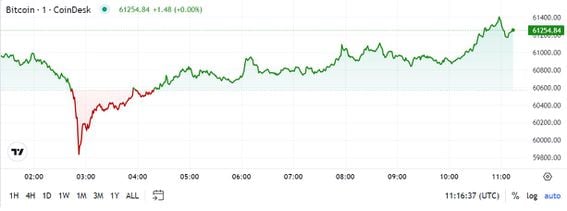The shop price inflation in the UK dropped to its lowest level in nearly a year in August. A decrease primarily influenced this decline in the pressure on food costs. According to data from the British Retail Consortium (BRC) released on Tuesday, the yearly inflation rate slowed to 6.9% in August. That was a notable decrease from July’s 8.4%, marking the lowest point since October 2022.
UK’s living crisis continues
Helen Dickinson, the CEO of the British Retail Consortium, explained that the reduction in shop prices was mainly due to the expenses related to food, especially products like meat, potatoes, and certain cooking oils. The inflationary pressures, especially concerning food, have been a significant concern. The BRC’s data indicated that food inflation eased to 11.5% in August, a decrease from the previous month’s 13.4% and the lowest level since September of the previous year.
The surge in food prices and the substantial increase in energy costs following Russia’s invasion of Ukraine last year have been the primary causes of the ongoing cost of living crisis. Over the past months, the cost of electricity and gas has been decreasing, contributing to a reduction in the overall inflation rate in the UK. Despite this, the inflation rate remains persistently high, at 6.8% in July.
Recent official data has also shown a slight relief in the inflation rates for food and non-alcoholic beverages. July dropped to 14.9%, down from the previous month’s 17.3%, continuing the decline from the peak of 19.2% recorded in March, which was the highest in 45 years.
Research conducted earlier this year by the London School of Economics proposed that around thirty percent of the increase in UK food prices since the end of 2019 could be attributed to trade barriers that emerged post-Brexit.
The latest data from the BRC indicates that the slowdown in the inflation of food prices is an ongoing trend, providing some relief for the numerous households grappling with high costs. The most significant reduction in pricing pressure was observed in fresh food, where inflation dropped to 11.6% this month. That marked a decrease from July’s 14.3% and represented the lowest level in a year, according to the BRC.
Regarding ambient food, which includes items stored at room temperature, inflation also slowed down. It reached 11.3%, down from July’s 12.3%, making it the lowest since January. Price pressures for toiletries and cosmetics also declined due to the decreased costs of various essential components. On the other hand, inflation in clothing and footwear went up as retailers concluded an extensive summer sales season, as noted by the BRC.
Mike Watkins, the head of retail and business insight at NielsenIQ, highlighted that recent poor weather conditions had suppressed demand. He also anticipated that consumers would maintain a cautious approach to discretionary spending, even with the easing of inflation in the UK.
UK consumer confidence has improved
Consumer optimism in the UK unexpectedly saw a positive shift in August, nearly reversing the decline observed in July. This could indicate a potential alleviation of strain on household expenses as inflation shows a decline.
Consumer confidence, as measured by an index from consumer research firm GfK, increased by five points to reach minus 25 this month, a notable improvement from the previous month’s minus 30. This outcome exceeded the expectations of economists, who had foreseen the level to remain unchanged at minus 30.
Against a backdrop of falling inflation, higher interest rates and rising weekly earnings, consumer confidence has regained momentum this month, said Joe Staton, Client Strategy Director at GfK.
The headline inflation rate decreased to 6.8% in July, down from 7.9% in June. Meanwhile, core inflation, which excludes the influence of fluctuating food and energy prices, remained unchanged. Meanwhile, average weekly earnings overtook the inflation rate in the three months to June, rising 7.8% on the year.
And although the index remains negative, the outlook for consumers’ financial situation for the coming year is heading toward positive territory, the key to indicating the future financial position of households, Staton said. He added that amidst the lingering fragility of the nation’s financial landscape, these glimpses of optimism emerge as a welcome respite, particularly given the hardships consumers throughout the UK face.





